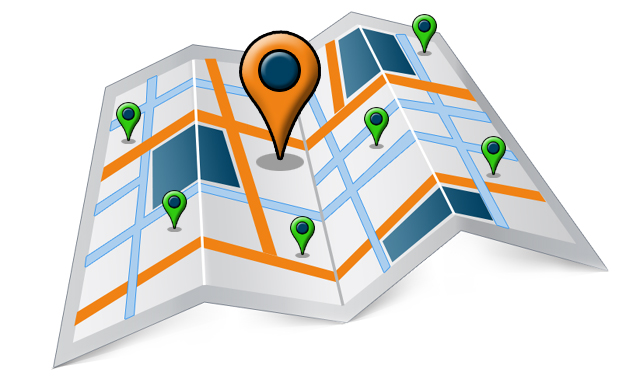Last updated on September 25th, 2020 at 03:58 pm
 “Is my location the reason why my practice isn’t doing well?”
“Is my location the reason why my practice isn’t doing well?”
Believe it or not, we hear that question quite a bit. And while you may not find yourself in this situation, you’ve probably heard it from at least one or two of your colleagues.
The “reasons” why their location is a problem vary…not good for expansion, can’t see it from the street, they just don’t like where they are, not enough potential patients in the area, too much competition, etc, etc.
For one reason or another, the doctor has determined that the primary barrier to their success has to do with where their practice is situated!
Now, to give you a simple answer to this question, I’ll say this: unless you are located in the Yukon Territory where there are only 10 people within a 500 mile radius, chances are your location is NOT the problem!
Yes, some locations are better than others. Some have more foot traffic, are easier seen from the road, etc. And while your location may be more challenging than others, all this means is you might have to promote a bit more or work a bit harder. But, again is this the reason why your office isn’t successful? In most cases, absolutely not.
The Grass is Always Greener
 Every location comes with its own particular challenges, whether you’re in Manhattan, a suburb or a rural area. It doesn’t matter which location you have, there will always be the “good” and the “bad” that comes with it. And as a result, there will always be dreams of a “better location” to handle a particular challenge you’re facing. But I promise you that this new location will bring up a whole new set of challenges.
Every location comes with its own particular challenges, whether you’re in Manhattan, a suburb or a rural area. It doesn’t matter which location you have, there will always be the “good” and the “bad” that comes with it. And as a result, there will always be dreams of a “better location” to handle a particular challenge you’re facing. But I promise you that this new location will bring up a whole new set of challenges.
And you might think, ”I hate this area and this challenge that I’m facing, so I’d like to move over there!”
Now maybe that will solve the challenge that you’re facing here, but then there will be challenges that you will face over there, and likely you’ll now also be sitting on a lot of debt from building out the new location or have had a big hassle getting out of your old lease.
And again, some locations are better than others, but I’ve seen dentists who are wildly successful in any number of “bad” locations—remote rural areas or a high-rise building with 25 other dentists on the floors below them!
And as Dr. Winteregg will tell you: he was one of 12 dentists in a small farm town of 10,000. I went to his office back then, which was located next to a grain silo. He wanted to sign up for the New Patient Workshop and my first question was: “Where are the people?” You know…who was he going to market to? He promised me they were there, and they were. And as you know he did quite well.
So the answer is no, your location is not the real problem, unless there really is nobody there.
What Would I Do in Your Situation?
I would examine the exact situation I’m in, take a look at why my office isn’t growing and sort that out first. Because I can more or less say with certainty that for most, the primary reason behind lack of growth is NOT their location (unless, again, you’re located in an area with NO people. And I have yet to find a dentist who would drop hundreds of thousands on a build out for a location with NO people…I’m still looking for that though and will let you know when I find him or her!).
One of the first things we teach at MGE is that there is always something you can do internally to become more productive and profitable. Any time a practice isn’t succeeding, whether it’s training their staff (our online training platform, DDS Success, has helped hundreds of dental offices train their staff in the comfort of their own office, by the way), marketing, organization, etc., there is something they are doing wrong that can be fixed. The reason is never “low dental IQ in my area” or “patients can’t afford treatment here” or “the economy.”
This principle has been proven right again and again and again.
Heck, we had one client whose Louisiana town was devastated by Hurricane Katrina, and despite having to shut down for a period to rebuild and help local homes and businesses, they somehow manage to GROW that year!
Your big takeaway from this article should be:
You CAN be profitable & expanding in almost any location. And if you aren’t, there’s a REASON (besides your location) that can be fixed.
 Weighing the Cost of Moving
Weighing the Cost of Moving
Keep in mind, if you move your office, how much will that cost? It’s not going to cost you a few hundred bucks—we’re usually talking hundreds of thousands of dollars.
I’ve seen people make this mistake countless times: they move when they didn’t really need to move and now they’re facing similar challenges AND they’re stuck with a bunch of debt from the move.
As I said above, there is an internal reason that you’re not growing. Find out the real reason and sort that out before dropping a quarter million dollars to move. Ninety-nine times out of a hundred, it’s cheaper than moving your office.
Extenuating Circumstances
There are certain scenarios where it would be beneficial to move.
For instance, I’ve seen it happen where a dentist is coming to the end of their lease and there is another space available in a better neighborhood that fits their needs perfectly (with very little investment required). In that lucky scenario, sure it would totally be a good decision to move to a more advantageous location. But did this dentist need to move in order to become profitable or start growing? No. Would it have been a good decision if it would have cost them hundreds of thousands? Possibly not.
And of course, there may be other scenarios in which there are legal issues or liabilities with your landlord or other such situations that would justify a move. Or on a brighter note, maybe a space opened up which allows you to buy versus renting. Any of these would have to be evaluated on an individual basis.
![]() Contact us at (800) 640-1140 if you’d like a more in-depth analysis of your situation. We can help you make the best decision for your business.
Contact us at (800) 640-1140 if you’d like a more in-depth analysis of your situation. We can help you make the best decision for your business.
And if you’d like to find out how to REALLY improve your production and profitability give us a call or register for one of our free seminars here.
 Weighing the Cost of Moving
Weighing the Cost of Moving

No Comments
Be the first to start a conversation